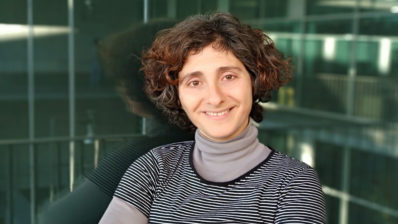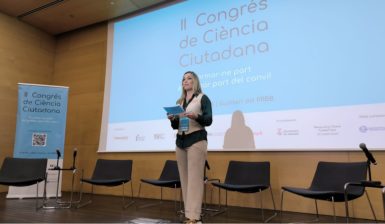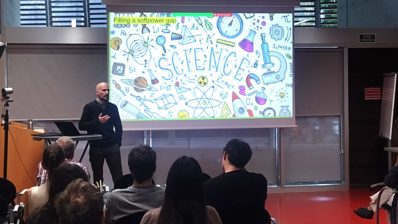Often unfamiliar to lab-based researchers, field work offers unique insights that can transform biomedical studies. By bridging the gap between sterile data and real-world environments, field work allows scientists to experience the full context of the phenomena they study, providing a deeper understanding of the issues at hand.
In this episode of ‘Science with A View’, the Barcelona Biomedical Research Park (PRBB) English podcast, we dive into the fascinating world of field work and its critical role in scientific research. And we’ll get to know more about Marta Álvarez-Presas, from the Evolutionary Biology Institute (IBE: CSIC-UPF), and Sarah Warkentin, from the Barcelona Institute for Global Health (ISGlobal), who will bring a unique perspective on field work in their projects.
Sarah is a nutritionist specializing in child health and in this episode she discusses her use of field work to uncover the environmental factors contributing to childhood obesity in local communities. She also points out the challenges researchers have to face while collecting data at schools and how to promote comittement among the families with the project.
Marta, an evolutionary biologist, shares her field experiences in the Atlantic forests of South America, where she collects invertebrate samples to aid her conservation work, while navigating the logistical and safety challenges of accessing the habitat. She points out how citizen science has helped her team in their research.
The podcast explores the impact of field work in their respective fields, the practical challenges they face, and what alternatives are there for research teams with limited funding. We also tackle the broader issue of academic work culture, questioning the necessity of long hours for success and discussing the importance of maintaining a healthy work-life balance.
Join us for an stimulating discussion on the irreplaceable value of field work and the evolving culture of scientific research. Listen to this episode here!






